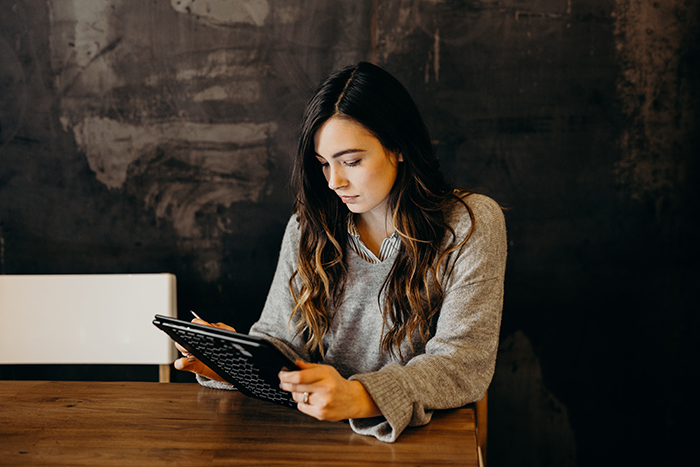
Congratulations! You have been accepted to study abroad in Australia. So, what’s the next step? Here’re some tips including tips to save money during study abroad.
Besides going through college stuff, tuition fees, and a place to live, you need to think about your finances.
When you live far from your family and in a different country, managing your money can be a big issue. Especially those who do not get financial aids.
Tuition fee as an international student in Australia is higher than local. Living expenses when you study overseas can also be higher when you come from a developing country due to the exchange rate.
Before you start living abroad, it is better to have some financial basic planning.
So, here is a guide to help you manage your money as a foreign student.
How to manage your money as an international student
-
Set up a local bank account
As an international student in Australia, having an Australian bank account is definitely recommended. It helps save international transfer fees which can cost a lot. Always find a reputable and trusted bank before you make one.
Many banks offer an interest rate when you put your money in a savings account. One of the biggest priorities in choosing a bank is to find one with an interest-free overdraft. It helps with any sudden, or unexpected emergency costs.
If you need to send money from Indonesian bank account to Australian bank, you can use Transfez to reduce the cost and time to deliver the money.
-
Create a budget
Start by looking at your financial situation and create an expenses list that might come up during your study in Australia.
The list can include things like:
- Monthly rent
- Groceries and food
- Transportation
- Phone and electricity bills
- Internet
- Household items
- Study materials
- Insurance
- Entertainment
- Personal expenses
Don’t forget to make room for an emergency or unexpected budget. Determine how much you can spend and save for the end of the month.
-
Find new earning opportunities
Australia allows international students to work part-time. This can be an opportunity to earn extra spending money and get to know the local culture.
You can find part-time opportunities in these industries:
- Retail – including supermarkets, department stores, boutiques
- Hospitality – cafes, bars, restaurants, delivery
- Farming and fruit-picking – seasonal work
- Services – childcare, aged care and cleaning
- Administration and clerical work
- Tutoring
If you can’t find enough time between studying and working, you can try freelancing or do affiliate marketing. As a freelancer, you can set your own time and fee as well as sharpening your skills in certain areas.
You can also try being an affiliate partner which allows you to earn extra money without too much work. You only need to promote the product and give your referral link and you will earn money from each transaction people make through the link.
Now that you are prepared, here are a few ways to save money while studying overseas.
Tips to save money as international student in Australia
-
Use public transportation
Ditch the Uber or taxi and use the public transportation like a local. This not only saves you a big chunk of money but also helps you navigate your new hometown.
Most universities in Australia are either campus-based or city-based with great transportation links. There’s a wide selection of public transportation like buses, trams, trains, even ferries.
Though, it can be different in each city so you need to look up public transportation in your city.
-
Always carry your student ID
Being a student does have its perks. With your student ID, you can save a load of money. This little card is very useful and will be your best friend as an international student.
You can get great deals on public transport, cafes, restaurants, bars, museums, cinemas, fitness centres, and other businesses.
Always check the student discount in every place you go. Don’t let being a student ruin your social life!
-
Use you campus facilities
You’ve paid for it. So, you can use them for free!
Enjoy free books and wifi in your campus library, get some good exercise in your campus fitness center or just jog around campus, and find any campus events as free entertainment. Psst, sometimes they also offer free food!
-
Get second-hand books (and other items)
Remember, not every book is necessary. List every book you absolutely need and find second-hand options. Most universities have a process of buying and selling used textbooks. You can also ask your seniors or buy from online stores or e-textbooks.
When you want to buy something, try to find a second-hand version. You can also sell them back once you are done with it!
-
Find birthday freebies
Yes, many food and beverage outlets will offer freebies for a birthday person. While most have some terms and conditions, they are totally worth it!
Why not enjoy the freebies you can get on your special day?
-
Shop around to find best deals
Grocery shopping can be a money-eating monster if you don’t shop wisely. So, we recommend you to go shop in different stores to compare prices and get better deals.
Finding best deals while shopping around in different grocery stores can result in fantastic savings! You can check the stores online for some great deals or coupons to save tons of money.
Another tip while shopping is to create a grocery list to avoid overbuy and avoid going with an empty stomach. You will be saved from buying stuff you don’t need because you’re hungry.
-
Cook at home
Biggest expense most students have is food. Eating out or buying take away can make a huge dent on your budget.
We suggest you buy weekly groceries and learn how to cook. This not only helps save some money but a fantastic way to live a healthier lifestyle.
By cooking your own food, you can measure everything. Cooking is also a great skill to have in life. So, open your google or youtube and find recipes for the food you love.
-
Find cheaper student accommodation
If you’re considering a budget-friendly student accommodation, try finding student apartments.
It allows you to live near campus and you don’t need to worry about electricity, phone, gas, or furniture. Yes, all of those are available in student apartments.
Living near campus, you can go there by foot or bikes. Whichever helps adding times to your exercise routine.
-
Budget-friendly entertainment
It’s great that you focus on studying and social life at university, but you also need some leisure time.
Instead of travelling out of town, try going around your city and explore a place you’ve never visited before. This will help you learn more about your city and the local culture.
You can also go out during weekdays to enjoy cheaper drinks and good food.And if you plan to go to the movies, choose Tuesdays or Thursdays as you can access more discounts on these days.
-
Choose social activities wisely
Be careful with doing things that might add up a lot of money in your budget. For instance, if you hang around often with a friend who loves to go out, eating out, and shopping frequently, you may end up spending a lot more money than you have planned.
It’s perfectly okay to say no to certain social events or suggest a more affordable option. You can invite them in and have a cookout or potluck party. Plan out a budget and everyone can contribute to it.
Living and studying in Australia can be pricey. Being a student with academic stress is not easy. By planning and spending wisely, you can avoid financial stress!





